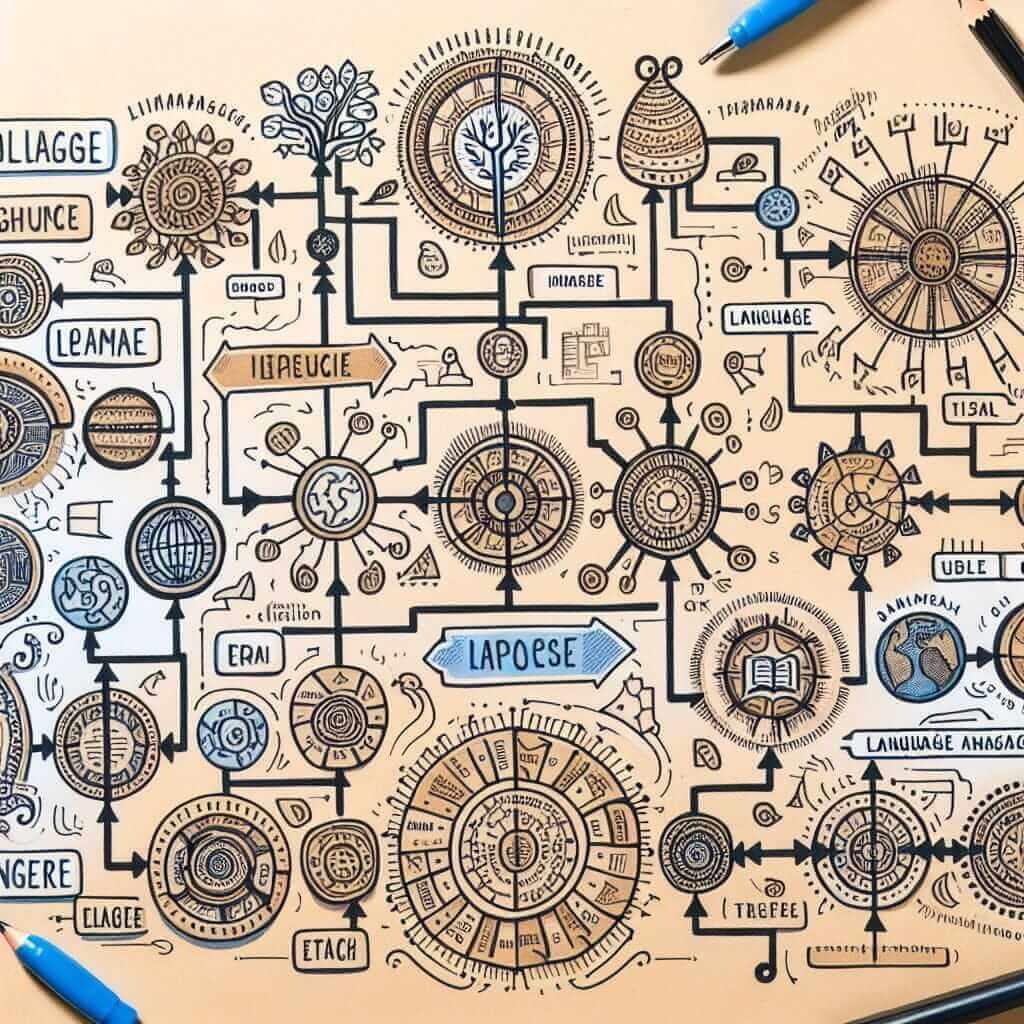As an IELTS instructor with over 20 years of experience, I often get asked by students how language changes factor into the exam. While you won’t be tested specifically on linguistic history, understanding the forces behind language evolution can significantly enhance your performance in the Speaking and Writing sections. Let’s delve into why this knowledge is beneficial and how you can effectively demonstrate it during your IELTS exam.
Why Understanding Language Change Matters for IELTS
The IELTS exam assesses your ability to communicate effectively in English. A key aspect of effective communication lies in using language that is relevant, adaptable, and demonstrative of a deeper understanding of how language functions.
Here’s how grasping language change can benefit you:
- Lexical Resource (Vocabulary): Recognizing how words and phrases evolve allows you to showcase a broader vocabulary and utilize synonyms and idiomatic expressions more confidently.
- Grammatical Range and Accuracy: Awareness of historical grammatical shifts can help you avoid common errors and use a wider range of grammatical structures.
- Fluency and Coherence: Being able to draw upon examples of language change in your speaking demonstrates an ability to think critically and organize your thoughts logically.
Factors Influencing Language Change
Numerous factors contribute to the ever-evolving nature of language. Some key drivers include:
1. Social Influences:
- Technology: The internet, social media, and texting have introduced new words, shortened forms, and altered communication styles. Consider terms like “selfie,” “hashtag,” or “DM” that emerged due to technological advancements.
- Migration and Cultural Exchange: The movement of people across borders leads to language contact, borrowing words, and the creation of new dialects or even languages. For instance, the presence of numerous loanwords from French in English reflects historical Norman influence.
- Social Attitudes and Identity: Language reflects social changes and attitudes. Words and phrases gain or lose popularity as societal values shift.
2. Geographical Factors
- Regional Dialects: Geographical separation often leads to the development of distinct dialects with unique pronunciations, vocabulary, and even grammatical structures.
- Language Contact: Languages spoken in close proximity influence one another, leading to borrowed words and grammatical features.
3. Internal Factors within Language
- Simplification: Languages tend to simplify over time, dropping irregular forms or complex grammatical structures.
- Analogy: New words and structures are often created by analogy to existing ones, creating a sense of regularity.

Demonstrating Your Knowledge in the IELTS Exam
While you won’t be asked directly about language change, you can weave this knowledge into your responses:
- Speaking Part 3 (Two-way Discussion): If a topic relates to technology, culture, or societal change, you can mention how language adapts to reflect these shifts.
- Example: “The internet has had a profound impact on language. Not only have new words emerged, but the way we communicate has become more informal and concise.”
- Writing Task 2 (Essay): When discussing social or cultural topics, you can reference how language evolves to mirror these changes.
- Example: “The increasing interconnectedness of the world has led to a blending of cultures and languages, resulting in a richer, more diverse linguistic landscape.”
Tips for Success
- Stay Updated: Pay attention to new words, slang, and language trends in the media and everyday life.
- Read Widely: Explore texts from different time periods and genres to observe how language use varies.
- Use Examples: Always support your points with specific examples of language change to showcase your understanding.
Remember, the IELTS exam evaluates your ability to use English effectively and demonstrate your grasp of the language’s nuances. Understanding how and why language changes equips you with valuable insights that can elevate your performance and impress your examiners.